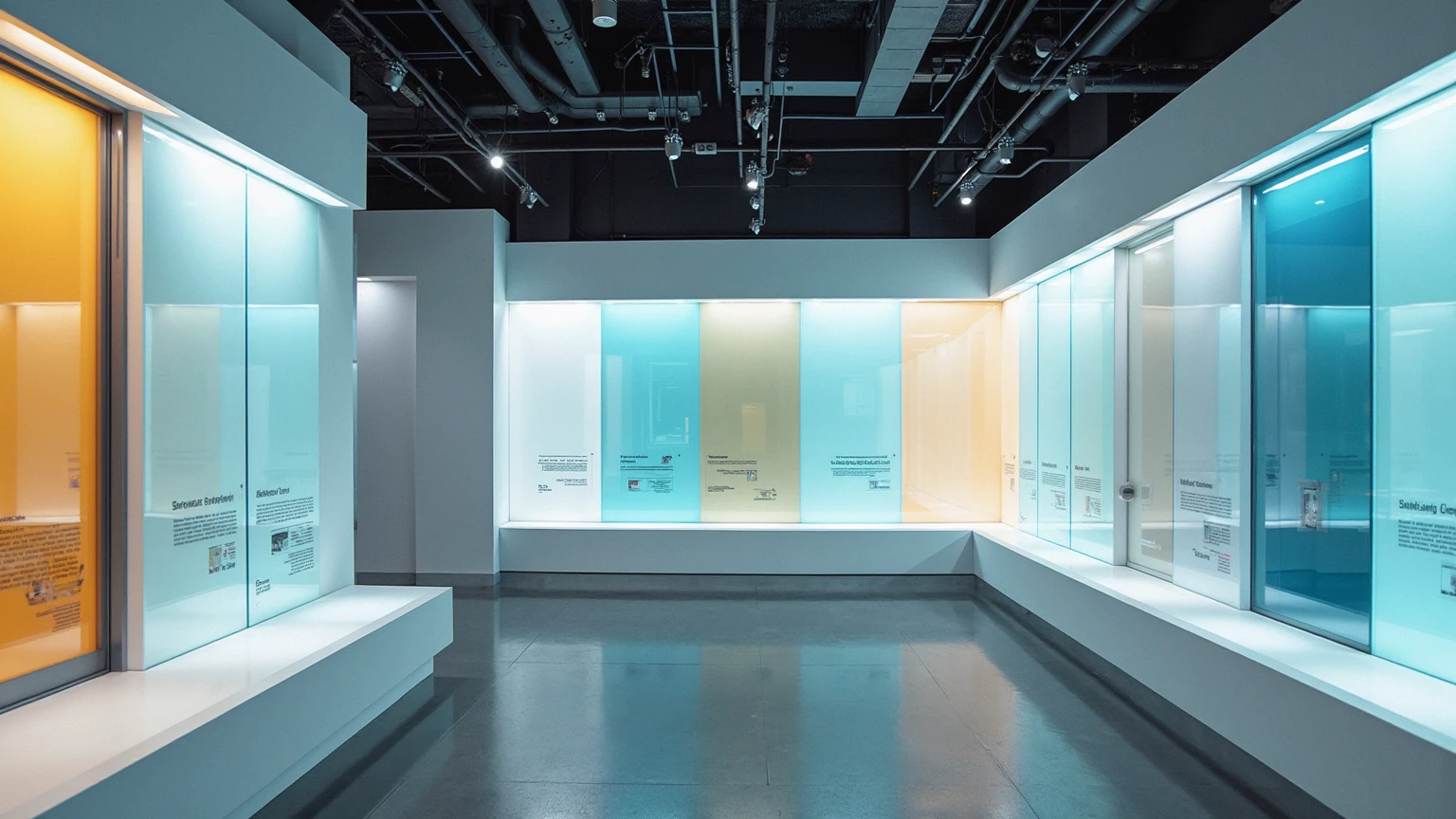Flat Glass Distributors Inc. stands out in the flat glass market due to its rapid growth and commitment to innovation. Since its establishment, the company has excelled in providing swift delivery services, supported by robust logistics and supply chain management practices. These operations ensure that customers receive their products promptly, enhancing customer satisfaction and loyalty. Moreover, Flat Glass Distributors Inc. offers custom solutions tailored to the needs of various sectors, such as construction and automotive. Their ability to adapt and design specific glass products catering to industry requirements makes them a preferred choice among businesses seeking specialized glass options.

China Glass Holding is renowned for its extensive international presence as a supplier of high-quality float glass. The company’s strategic positioning in the global market has been bolstered by impressive export statistics, targeting key regions such as North Africa, the Middle East, and Europe. According to recent reports, their annual export revenues could reach up to $120 million from their Cairo-based operations alone, emphasizing their market influence. To sustain these standards, China Glass Holding employs rigorous quality assurance processes, ensuring each product meets the highest manufacturing standards. This commitment to quality has fortified their reputation as a leading global supplier in the float glass industry.

NSG Group, under the Pilkington brand, has carved a niche in both architectural and automotive glass sectors. Their expertise in these areas is demonstrated through significant contributions to innovative glass technologies, particularly in the realm of design and safety features for vehicles. The Pilkington brand has consistently influenced key markets, leveraging its advanced technologies and quality products to maintain a substantial market share. This dual focus has not only augmented their presence but also positioned them as industry leaders in integrating cutting-edge glass solutions into everyday applications, ensuring enhanced safety and aesthetic appeal in architectural and automotive designs.

GlassTemp has recorded remarkable growth in the U.S. market, standing out as a leader in custom flat glass solutions. The company achieved an impressive 387% growth over three years, securing its position on Inc. Magazine's list of Fastest-Growing Private Companies in America at No. 1,483. Their innovative approach to glass fabrication allows them to cater to specific building projects, providing tailored solutions that meet unique client needs. Customer testimonials and case studies consistently highlight GlassTemp's efficiency and dedication to quality, which have been pivotal in securing their market position. Their commitment to customer satisfaction ensures they remain a preferred choice in the custom glass solutions sector.
Troy Systems has gained prominence in bulk wholesale glass distribution by leveraging its strategic supply chain. Based in Manassas, Virginia, the company has seen a three-year growth of 168%, which earned them a spot at No. 3,089 on Inc. Magazine's list. Troy Systems specializes in sheet glass, glass tabletops, and glass replacement products, offering reliable large-volume orders to various sectors. With their efficient supply chain strategies, the company remains poised for growth in emerging markets, backed by current industry trends and statistics indicating a rising demand for bulk glass products.
D3 Glass, located in Florida, focuses on the fabrication of flat-glass products for commercial markets, such as retail environments and offices. This specialization has helped them achieve a 146% growth rate over three years, placing them at No. 3,428 on Inc. Magazine's list. D3 Glass distinguishes itself through the use of advanced fabrication technology that enhances the design and functionality of commercial glass products. The company is also known for strategic partnerships and collaborations that expand their product offerings and market reach. These efforts reinforce D3 Glass's influence and effectiveness in the competitive commercial glass market.
Befar Group operates in Egypt with a strong focus on sustainable manufacturing practices. They are establishing Egypt's first green chemical plant, which includes a $500 million chlor-alkali production facility that leverages wind and solar energy for steam generation. This initiative not only strengthens Egypt's position in green manufacturing but also ensures reduced environmental impact, supported by industry reports highlighting the benefits of green energy sources. Befar Group's commitment extends to offering diversified flat glass products that cater to both local and international markets, enhancing Egypt's export capabilities across regions like North Africa, the Middle East, and Europe. As the global emphasis on sustainability rises, Befar Group’s activities in Egypt align well with these global trends.
AGC Glass North America leads the charge in architectural glass innovation, enhancing both functionality and aesthetic appeal. Their introduction of cutting-edge products, such as solar control and low-emissivity glass, demonstrates their commitment to energy efficiency and design versatility, pushing the boundaries of architectural projects. Through these innovations, AGC Glass is influencing numerous North American architectural endeavors and establishing a robust market position. Their strategies amplify their influence, enabling them to dominate the realm of architectural glass more effectively. This focus on innovation not only advances technological frontiers but also positions AGC Glass North America as a pivotal player in revolutionizing modern architecture.
Flat Glass Group Co. is a significant player in the Asia-Pacific region’s flat glass industry, known for its expansive market reach and leadership. The company has achieved substantial market share and has built impressive production capabilities, allowing them to adeptly manage both local and international demands. Their strategic expansion efforts within the Asia-Pacific region underscore their commitment to growth. Insights into the flat glass industry reveal dynamic market conditions and opportunities, and Flat Glass Group Co's operations adaptively position them to capitalize on these trends. Their forward-thinking strategies ensure that they remain at the forefront, spearheading progress within the flat glass sector.

Automated storage systems, such as the Turomas SR-07, are revolutionizing flat glass distribution by enhancing efficiency in inventory management. These systems utilize advanced technologies to automate the storage and retrieval of flat glass, thus reducing handling time and labor costs. The Turomas SR-07, in particular, is known for its precision and ability to handle various glass sizes, allowing for seamless order fulfillment. Companies that have implemented such automated systems have reported significant improvements in operational efficiency, with some studies indicating a reduction in order processing times by up to 50%. This level of automation not only streamlines operations but also allows companies to better meet the demands of their customers.
Energy-efficient glass production techniques are crucial for reducing the environmental impact of the industry. These methods often involve optimizing furnace temperatures, using waste heat recovery systems, and incorporating energy-saving technologies in the manufacturing process. Companies leading the charge in sustainable manufacturing have seen tangible benefits, including decreased carbon emissions and lower production costs. For instance, a case study of a glass manufacturer that retrofitted their production line with energy-efficient technology showed a 20% reduction in energy consumption. Such savings are not only beneficial from an environmental perspective but also contribute to significant cost reductions for producers, enhancing their competitive edge in the market.
The adoption of digital tools is transforming supply chain optimization in the flat glass industry, allowing for enhanced visibility and coordination among suppliers and distributors. These tools include software solutions that provide real-time data analytics, inventory tracking, and demand forecasting, which enable companies to make informed decisions. Examples of such solutions have demonstrated improvements in delivery times and reductions in operational costs. A report detailing the implementation of digital tools in a leading glass distribution company highlighted a 30% increase in supply chain efficiency, underscoring the vital role of technology in modernizing and optimizing the distribution process.
When evaluating flat glass distribution companies, it's crucial to consider certain certifications, particularly ISO and ASTM standards. These certifications serve as benchmarks for product quality and adherence to international safety and performance standards. ISO certifications, like ISO 9001, focus on quality management systems that emphasize enhancing customer satisfaction. Meanwhile, ASTM standards ensure the material and structural integrity of glass products across various applications. Verifying these certifications involves checking the distributor's documentation and potentially consulting third-party certification bodies. This diligent verification process is essential to guarantee that the glass products you receive are reliable and meet global standards.
An effective delivery network is essential for any reputable flat glass distribution company. When assessing prospective suppliers, focus on their ability to cover wide geographic areas while ensuring timely deliveries. Comprehensive coverage allows a distributor to meet diverse customer demands efficiently, minimizing delays and enhancing satisfaction. Case studies have shown that companies with robust delivery networks can significantly boost customer satisfaction by providing consistent and prompt service. Therefore, it is wise to inquire about a distributor's logistics capabilities, including their use of technology to track and manage deliveries effectively.
Achieving the right balance between cost and quality is crucial when forming partnerships with flat glass suppliers. While low costs might be tempting, it's essential to consider the long-term implications of sacrificing quality for price. A supplier offering subpar products can lead to higher costs through frequent replacements or repairs, ultimately diminishing any initial savings. Industry experts recommend evaluating both aspects systematically—seeking suppliers who offer competitive pricing without compromising on material quality. By maintaining this balance, businesses ensure both cost-effectiveness and high-standard results, supporting sustained success in an evolving market landscape.
Key certifications include ISO and ASTM standards, ensuring quality management and structural integrity.
Digital tools are used for supply chain optimization, providing real-time data analytics and improving delivery times.
Innovations include automated storage systems and energy-efficient production techniques that enhance efficiency and sustainability.